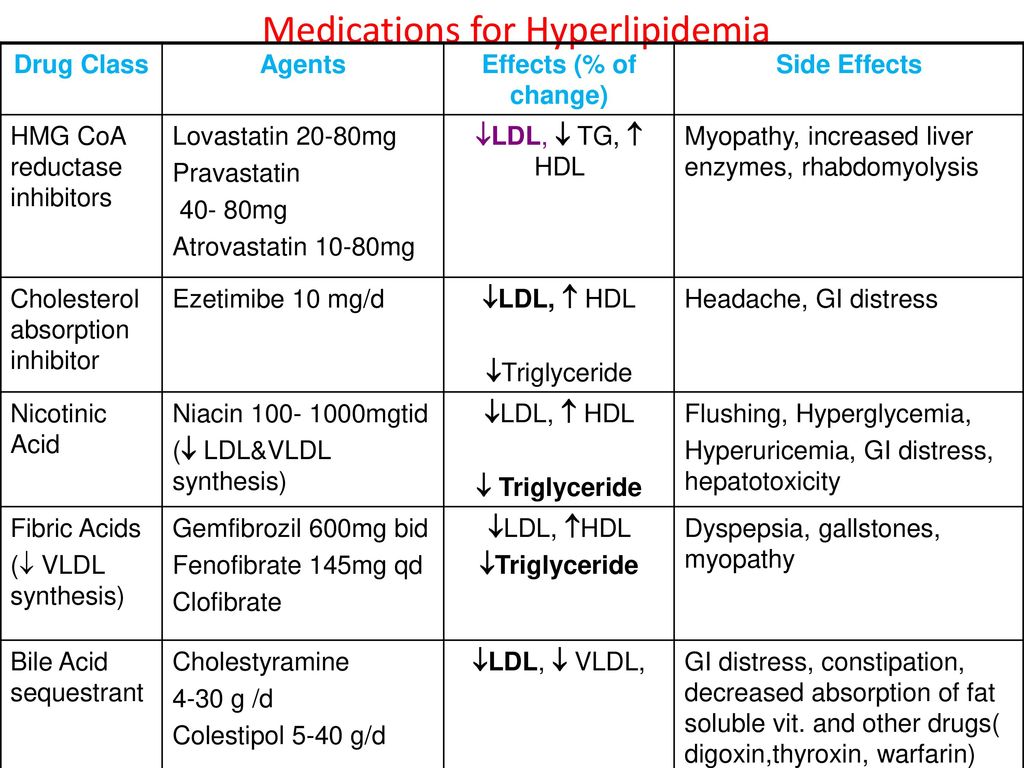
There are many medications for dyslipidemia, and the right one for you depends on your individual needs. These medications are usually part of a broader strategy that addresses the underlying causes of the condition. Depending on your specific condition, doctors may prescribe a number of different types of lipid modifying drugs. Some of the more common medications for dyslipidemia include statins and resins. Others include niacin, antisense oligonucleotide drugs, and PCSK9 inhibitors.
While various organizations have issued recommendations for the management of dyslipidemia, there are some material differences and commonalities among them. The National Lipid Association convened an Expert Panel to develop a consensus of recommendations. These guidelines were then used by practitioners to prescribe a dyslipidemia medication. However, the recommendations are not always universal. In some cases, you may need to change your prescription to try something new. For example, you may need to adjust the dosage of your ACE inhibitor, but this is a rare side effect.
Nonadherence to dyslipidemia medications is a major challenge. Using an effective approach that minimizes the problem of nonadherence and maximizes the benefits of a prescription is essential for the health of your heart and your life. If you are taking a statin for hypercholesterolemia, follow your doctor’s advice on how to take it to lower your risk of developing cardiovascular disease. While there are some side effects associated with these medicines, they are well worth it.
A specific approach to managing dyslipidemia medications is crucial to their success. By understanding the types of these drugs, you can better manage your condition and get the most benefit from them. Regardless of how the medication works for you, a thorough understanding will help you make the best choice. The key is to choose the best drug for your condition. So, the best choice for your specific needs is to consult your doctor. Just remember, you should follow your doctor’s instructions carefully.
In addition to lifestyle changes, a patient’s medical history and their lifestyle should be taken into consideration. Taking medication is a very important part of managing dyslipidemia, and a high level of adherence is important for your health. A healthy lifestyle will help patients reduce the risk of CVD, so it is vital to follow your doctor’s instructions. This will ensure that you achieve the best results with your medications.
If you have a family history of heart disease, you should avoid smoking and alcohol. While avoiding these medications will decrease your risk of cardiovascular disease, they should be taken carefully. Besides reducing the risk of CVD, these medicines can also reduce your risk of death. They can also lower your cholesterol. If you follow these guidelines, you’ll enjoy better health. It is important to remember that these medications are meant to treat the underlying cause of your dyslipidemia, not treat the symptoms or cure.
Although these medications are effective for dyslipidemia, they are not without their drawbacks. The most important is that they should not be taken with alcohol. If you’re taking these medications, you’ll be more likely to avoid any potential side effects. A well-maintained diet is important to maintain a healthy cholesterol level. Keeping your medications in check is crucial to achieving the best outcomes and minimizing the risk of cardiovascular disease.
While some people can successfully manage dyslipidemia without medication, many people cannot. As a result, there are several medications available that can help people with dyslipidemia control their condition. These drugs should be taken regularly to ensure their safety and effectiveness. If you do not take them regularly, you may experience side effects. Therefore, it is important to follow the doctor’s recommendations. You should also keep a close eye on any possible side effects. If you have hyperlipidemia, you should immediately seek advice from the site indonesiabch.or.id/ and discuss treatment options with a healthcare professional.
It is important to understand all the details about the drugs used for dyslipidemia. There are many factors that influence adherence to treatment for dyslipidemia. Those taking medication for this condition may find it difficult to adjust to the medication. For example, if they think their medicines are too expensive or too difficult to use, they won’t take them at all. As a result, medication non-compliance is a major problem for these patients.